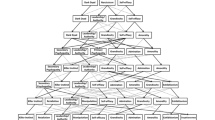Summary
In this paper I have attempted to define duplicity and differentiate it from neurosis and conflict. I have attemped to distinguish duplicity as maneuver and duplicity as strategy, and to indicate the forms duplicity takes in various phases of the analytic work, depending on the extent to which the ratio of energy investment favors the pride or real self system. I have done this to mitigate the deleterious effects of the generally helf, one-sided, destructive meanings attributed to the term duplicity, and to do so by expanding and revising the concept to indicate the general existence and detailed manifestations of moral dividedness, or moral imperfection. With such a tolerant, constructive understanding of this moral issue, unnecessary pain can be mitigated and more energies made available for constructive discontentment with, and work on, this problem in ourselves, whether in self-analysis or in psychoanalytic therapy.
Similar content being viewed by others
Literatur
Simpson, G.,The Meaning of Evolution, New Haven: Yale University Press, 1949.
K. Horney,Neurosis and Human Growth, New York: W. W. Norton & Co., 1950.
K. Horney,Our Inner Conflicts, New York: W. W. Norton & Co., 1945.
N. Kelman, Example from psychoanalytic practice.
Additional information
Read before the Association for the Advancement of Psychoanalysis at the New York Academy of Medicine, April 25, 1951.
Yale, B.S., 1927; Harvard, M.D., 1931; Columbia, D.Md.Sc., 1938; Diplomate, American Board of Neurology and Psychiatry; Fellow, American Psychiatric Association; President and Lecturer, American Institute for Psychoanalysis; Lecturer, New School for Social Research.
Rights and permissions
About this article
Cite this article
Kelman, H. Duplicity. Am J Psychoanal 11, 21–35 (1951). https://doi.org/10.1007/BF01872802
Issue Date:
DOI: https://doi.org/10.1007/BF01872802



